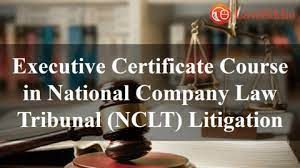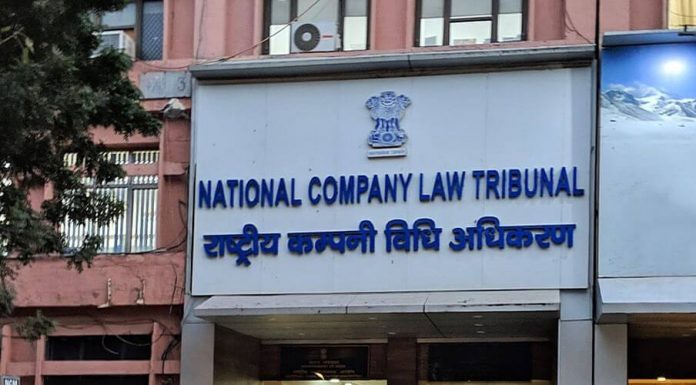This article has been written by Aditee Arya, pursuing a Certificate Course in National Company Law Tribunal (NCLT) Litigation from LawSikho.
Table of Contents
Introduction
The case stands as an important judgment by NCLAT (National Company Law Appellate tribunal) which lays emphasis on jurisdiction by the NCLT (National Company Law Tribunal) in matters of judgment related to rectification of registers of companies covering Section 59 of the Companies Act, 2013. NCLT was formed after the new Companies Act 2013 came into existence. Before the act, all matters related to the company would be referred under the companies act 1956 to the company law board while sometimes the parties would move to the district courts or the high courts for similar matters and the decision of the board was not honored. There existed duplicates of cases in court and in board and lack of uniformity and so the decisions given by the company law board were changed when the case was referred by another party to the court. So in order to establish the supremacy of one single tribunal’s decision, it was important for uniformity in decisions and honoring the decisions.
This article aims to give its readers a clear view of the tribunal’s judgment in the MAIF case. This case stands important as in the case the NCLAT clarifies that after interpreting the reasons of the lawmaker behind making the new act. The tribunals clarify that matters covered under the Companies Act, 2013 can only be decided by the NCLT and cannot be decided by the civil courts. NCLAT has established the supremacy of the judgments by the tribunals in all matters arising under the Companies Act, 2013. The article covers the background of the case, the facts, contentions of the parties, and the decision by NCLT and NCLAT.
Facts of the case
- MAIF Investment India PTE Ltd. is the petitioner and the appellant. MAIF invested in the Ind-Bharat (respondent) company’s compulsory convertible shares and one Equity share. They signed an agreement according to which the compulsory convertible shares owned by the petitioner can be converted into equity shares after their consent and by holding a meeting. The respondent tried to convert the debentures into shares which were opposed by the petitioner.
- A notice was issued dated 17th March 2018 by Respondent no. 2 for conducting a board meeting dated 26th March 2018, for converting the holder of the convertible shares by the petitioner into equity shares which were opposed by the petitioner being decided unilaterally i.e., without the consent of the petitioner. The petitioner withdrew their name from the board of directors due to the breach of the agreement.
- Later Ind-Bharat entered MAIF Investment India as its equity shareholder of more than one share in their member’s register, without their consent, converting their convertible debentures into shares.
- MAIF filed a petition in NCLT against the act done by Ind-Bharat, of converting the securities which was a reserved matter.
The decision by the NCLT
- NCLT bench of Hyderabad dismissed the petition by stating that this matter was complex and contentious which should be adjudicated under Section 8 of Arbitration Act, 1996 and Section 29(A) of the Insolvency and Bankruptcy Code, 2016, referring to the case of Ammonia Supplies Corporation Pvt. Ltd. vs. Modern Plastic Pvt. Ltd. & Ors., in this case, the Supreme Court held that when a matter related to rectification of register is complex then it shall be adjudicated by civil courts.
- The bench held that the matter is contentious and the conversion of the compulsorily convertible shares into equity shares within 5 days of issuance of the notices dated 17th March 2018 was a question of law and this matter cannot be decided by the NCLT.
- But the Petitioner then appealed to the NCLAT.
Issues before NCLAT
- Whether this was a complex and contentious issue, to be adjudicated by the Civil court?
- Whether the CCD’s conversion to equity shares should be decided with the consent of the investor?
- Whether there was a breach of the AOA and the investor agreement by respondent no. 1?
Contentions by the appellant
- The appellant contends that the matter of conversion of shares was a reserved matter according to the company’s AOA. So, it should have been done with the consent of the investors. They contended that the act done by the respondent is ultra vires as this matter can not be done without the consent of the petitioner. And if any such act is done i.e converting the CCD into equity shares would be a change in the equity capital of the respondent and that can not be done without the consent of the petitioner according to the investor agreement signed between the parties dated June 25, 2015.
- The appellant contended that there was a breach of the fiduciary relationship from the respondent.
- Petitioner demands for rectification of register of members that the petitioner should not be a member holding equity shares of the respondent.
Contentions by the respondent
- The respondent responds that the conversion has been validly carried out by them in accordance with the investment agreement entered by the appellant at the time of investing.
- The respondent also contended that the appellant has filed multiple petitions which means that they seem to have many different motives. And that according to section 8 of the arbitration and conciliation act their petition and appeal shall stand barred.
A peek in the Companies Act, 2013
- Section 59 of the Companies Act; Rectification of Register of Members: states that, if a party who is no more a member of the company and whose name has been entered in the register of the members of a company or has not been removed or in a case in which a party becomes a member of a company but its name has been omitted from being entered or is not entered in the register of the members of the company such aggrieved parties can appeal to the tribunal for rectification of registers.
- The tribunal can either dismiss the petition based on the facts or accept and move towards the proceedings.
- The section does not take any party’s right from the transfer of shares.
- Section 430 of the Companies Act; Civil Court not to have Jurisdiction: Bars the jurisdiction of the civil court over matters which are to be empowered by the Companies Act to be decided by the National Company Law Tribunal or the NCLAT. Also, no court shall pass any injunction over matters which are pending to be decided by the tribunals. This section is effective over cases that will arise after 1st June 2016. This was made because parties moved to civil courts for company law matters.
 Decision by NCLAT
Decision by NCLAT
- NCLAT referring to the decision of Shashi Prakash Khemka vs. NEPC & Ors. Decided in 2014, the parties, in this case, filed an appeal against the order of company law board to the Madras High court on the matter of Section 111-A of the companies act, 2013 referring to it as a civil suit which cannot be adjudicated by the board, but the supreme court held that a civil court has no jurisdiction in matters which are decided by the National Company Law Tribunal (NCLT) and NCLAT under Section 59. If the disputes are from the Companies Act, 2013.
- The appellate tribunal held that the NCLT can adjudicate over matters related to rectification of registers even if the issue in the case is complex and contentious. Section 241 and 242 of the act provide wide powers to NCLT. Powers under Section 241 and 242 do not mean that matters under Section 59 cannot be dealt with by the tribunal. NCLAT barred jurisdiction of the civil court as according to Section 430 of the Companies Act.
- NCLAT held that the conversion of CCD into equity shares should be done with the consent of the holder according to the AOA. That the issue was not complex and contentious, and rectification shall be done removing the grieve of the appellant. The board held that it was a matter which should have been decided in the presence of the investor of the company and there should have been the presence of at least any one of the directors of the investor company. It was ultra vires on part of the company to decide the matters without the consent of the investor i.e., the petitioner. The written consent from the investor must have been taken according to Article 59.1 of the AOA of the company and so the conversion of the convertible debentures was wrong as if the company did have the power to do so they wouldn’t have called for a meeting of the board of members even at the first place. If Article 62.1 and 62.2 is read off the AOA it shoes that conversion of the compulsory convertible debentures into equity shares is a reserved matter and it would mean change in the paid-up equity of the company which can not be carried forward without the consent of the investor the article 59.1 of the AOA mentioned written consent of the investors.
- The tribunal exercising power given under Section 59 of the Companies act directs to undo the act and that the name of the petitioner from the register of the members should be removed which states them holding the equity shares of the company.
Conclusion
After having a brief reading of the case, it is clear that after 2016 any matter which will be covered by the provisions of the Companies Act 2013 can be adjudicated only by the tribunals (NCLT and NCLAT), and the jurisdiction of the civil court has been barred by the act. However, parties can always opt for arbitration and the mediation process of resolving disputes. Hence, the National Company Law Tribunal has exclusive jurisdiction for all the company matters. Tribunals are specialized in the matters for which they are made, we can conclude that tribunals are formed with the objective to resolve the dispute they are made for and if those disputes are referred to courts only then what is the point of forming tribunals. It is a tendency of moving to court when parties are not satisfied or when matters are complex. We could learn from the article that about this case in which the NCLAT has in clear words concluded the discussions and debates to the point that only the tribunal has the jurisdiction in the matter and no other court can adjudicate upon the matter and all parties shall only move to the tribunal and decisions by courts will not be valid.
Students of Lawsikho courses regularly produce writing assignments and work on practical exercises as a part of their coursework and develop themselves in real-life practical skills.
LawSikho has created a telegram group for exchanging legal knowledge, referrals, and various opportunities. You can click on this link and join:
 Serato DJ Crack 2025Serato DJ PRO Crack
Serato DJ Crack 2025Serato DJ PRO Crack









 Allow notifications
Allow notifications


